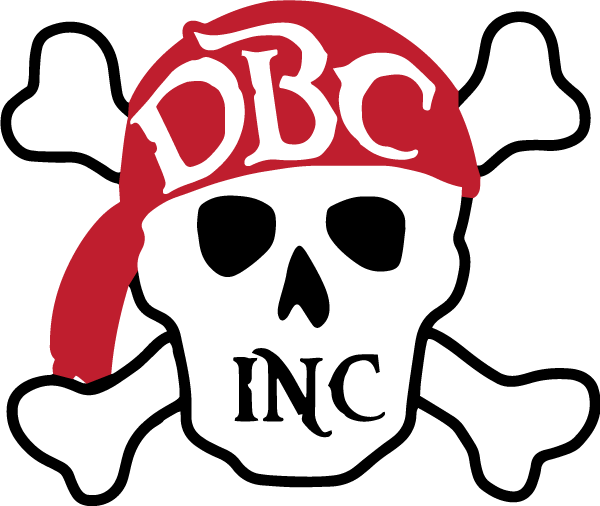Dwight Carter is a nationally recognized and award-winning education leader from Central OH and the Director of Student Support Systems for the Eastland-Fairfield Career and Technical School District.
He is the author of the brand new release: Be GREAT: Five Principles to Improve School Culture from the Inside Out (IMPress, 2022).
If you're not already, you will want to connect with Dwight on Twitter at @Dwight_Carter, or on his blog at Mr. Carter’s Office for even more outstanding content.
But for now...let's learn a little from an excerpt of Be GREAT: Five Principles to Improve School Culture From the Inside Out, chapter one, titled, What We Control.
How Your Attitude Impacts Your Actions
When I became principal at New Albany High School in 2014, I learned a valuable lesson about the importance of attitudes and actions. We faced a $7.5 million deficit, which required the passage of an $8.9 million levy, or we would have to make massive staff and program cuts.
The news was devastating to the staff and community.
Unfortunately, the levy failed, so we had to make some significant changes to how we did business. We had to eliminate nearly one hundred positions from every area. We lost staff from our curriculum department, assistant principals from three of the four buildings, custodians, bus drivers, teachers, secretaries, and educational assistants. Our pay-to-participate fees also increased, which created a burden on families.
It was an emotionally and physically draining process to have to reduce staff. Inevitably, there was a loss of security, fear and anxiety increased, and educators felt less valued. Isolation increased while collaboration and a desire to do anything “extra” seemed burdensome. Our attitudes and actions had a major influence on the short-term and long-term outcomes for staff as we tried to help them navigate through these tough times.
We could not change the outcome of the levy, so we focused on how we communicated with others. During times of uncertainty, the people we serve need to hear a clear and concise message. No fluffy, vague, or ambiguous talk is acceptable because it only increases doubt, a lack of trust, and anxiety. This approach may entail making decisions that are not going to be popular, but this is part of communicating specific and concrete information.
We chose to reexamine our vision by asking reflective questions about where we wanted our school to go and what we wanted it to become. It was challenging because we were experiencing loss and an overwhelming sense of uncertainty.
Leading through loss forces us to think creatively about how to do business with less, which is not always a bad thing. A part of the process requires us to identify constraints and challenge ourselves and others, and we must share ideas about how to do business in a different, more productive manner.
We broke through the barrier of isolation by becoming more intentional about collaboration. We created a plan of action and communicated it to small groups at first. Then we reshaped and reviewed our plan before sharing it with a broader audience. We sought input from others before making a decision or relying on others to make a decision. Having some level of collaboration is important. Make sure you have an operational definition of collaboration before moving forward. If not, you can cause more harm than good.
Leadership takes courage, especially through tough times. Not only did we have to control our attitudes and actions—we also had to influence those of everyone else in the building. People suffered from survivor’s remorse, class sizes increased, and there were lingering hard feelings about how badly the levy failed. It was a roller coaster ride of emotion for most of the year, and it extended into year two. In the spring, we were able to gain some traction when we added a few teacher and administrator positions.
Year three started off strong! We hired a dynamic team of administrators, including a new athletic director from out of state named Richie Wildenhaus. His impact was immediate. He focused on two things: bringing more clarity to our pay-to-participate program and
developing our coaches. Richie partnered with a leadership coach named Jack Slavinski. Our coaches loved Jack’s style, approach, and processes to get positive results. He soon began working with our student-athlete leaders. Jack and I became friends after a few conversations, and I hired him to work with our building leadership team because we were not making the progress I thought we should be and kept facing internal conflicts.
Our building leadership team consisted of administrators and department leaders. During a meeting one day, Jack asked a few questions and listened intently for about forty-five minutes. I turned to him and asked, “Jack, what are your thoughts?” He smiled and said, “I notice the levy keeps coming up as the reason why you are not able to move forward with some initiatives. How long ago was that?” A few of us glanced around the room, and one of the leaders said, “Two years ago.” Jack smiled. Then, quite frankly and sincerely, he asked, “How long are you going to drag that anchor?” The room went silent.
It was a simple yet profound question. The implication was that our lack of progress was due to our unwillingness or inability to own our problems and move forward. We’d become victims of an event, and our choice to use the levy as our anchor hindered our ability to see that we had other options. Our default behavior was to blame others, complain about our circumstances, and resist new ideas. Our narrative, attitude, and actions were controlled by the anchor we refused to pull up.
Here’s a question: What anchors are you dragging around?
During disruptive times like those we are currently facing, we hold on to emotional anchors. If we lack emotional intelligence, these anchors can be detrimental to our school culture and climate. According to author and editor Thomas Oppong, “Emotions influence our attitudes and judgments, which in turn, influence the decisions we make. Your success and progress largely depend on your ability to understand and interpret how you feel before making any snap judgment.”1
Education is one of the most noble professions. Our primary responsibility is to provide a safe learning environment that enables students to develop cognitive and social skills and find their pathway to success. Because we’re always working with people, education is also a highly emotional profession. It can take a toll on us if we lack the proper attitude to handle the ever-increasing expectations placed upon us.
To learn more about Dwight’s five principles that define GREAT, order your copy today!
Thank You, Dwight!
Thank you, Dwight! Such a powerful message.
Be sure to connect with Dwight on Twitter at @Dwight_Carter and follow his blog at Mr. Carter’s Office. You won't regret it!
Want to learn more? Click below and read the first few chapters of Be Great absolutely FREE!
Be Great
You Don’t Have to Be Perfect to Be GREAT
More info →





